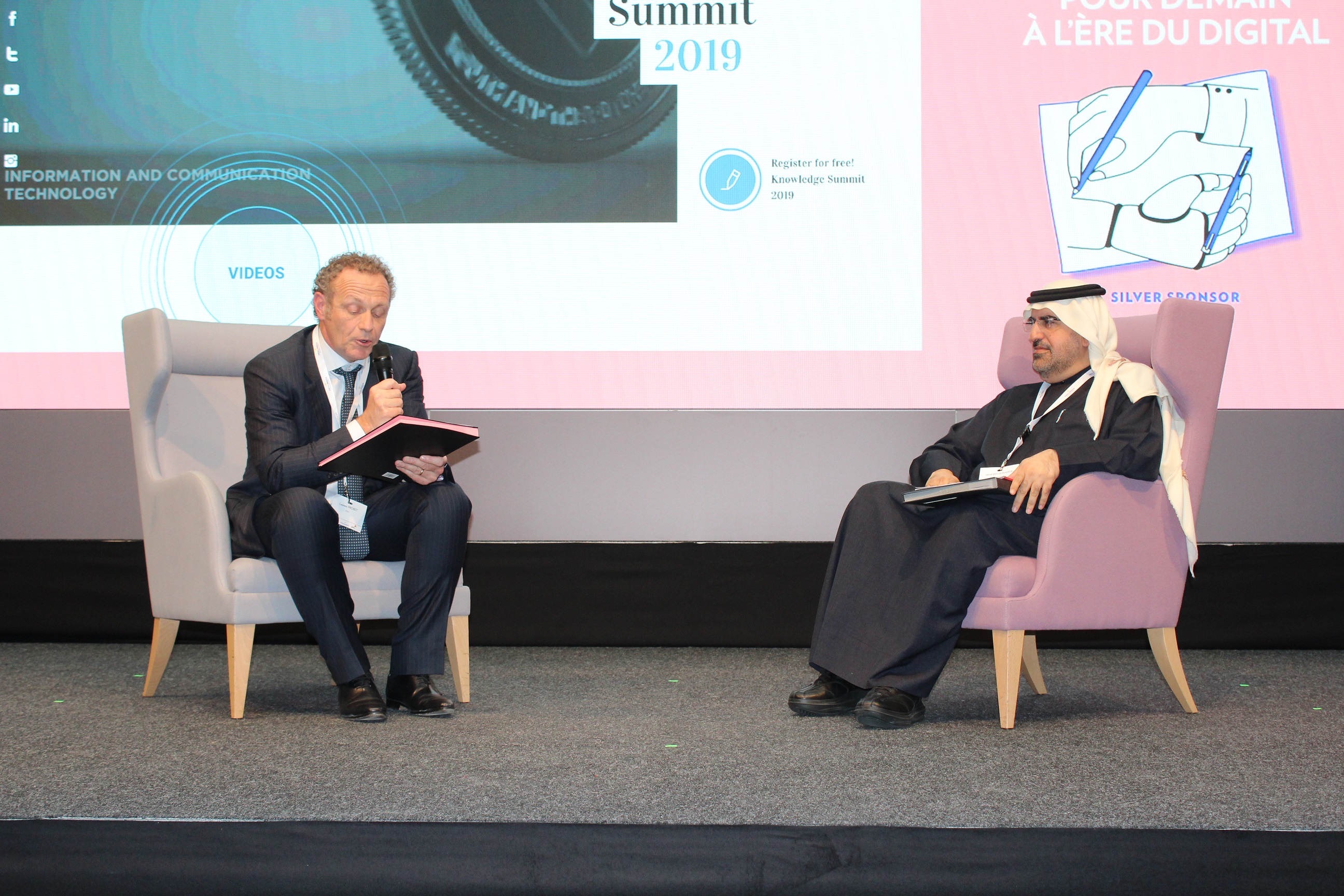Mohammed bin Rashid Al Maktoum Knowledge Foundation Takes Part in PwC Luxembourg’s ‘Upskilling for the Future’ Workshop
Bringing together more than 300 experts in the sector from around the world, the workshop sought to shed light on methods and practices to develop future-ready skills, tailored to the job market. Speaking at the workshop, Dr. Laurent Probst, Partner, Economic Development, Digital transformation and Innovation at PwC Luxembourg, showcased the “The Future of Knowledge: A Foresight Report”, launched by MBRF and the United Nations Development Programme (UNDP) during the Knowledge Summit 2018 in Dubai. The study was a trailblazer exploring the future fields of knowledge that will drive the transition to knowledge-based societies.
The report presents a pilot study covering 20 countries on the future fields of knowledge – the ones that will shape the future of knowledge societies. It is an attempt to better understand the technological trends drastically reshaping the future, and experiment with new approaches to capturing and analysing real-time data associated with the five future fields of knowledge: Artificial intelligence, cybersecurity, Blockchain, biotechnology, and future skills.
In his keynote speech at the event, MBRF’s CEO His Excellency Jamal bin Huwaireb, said: “The Fourth Industrial Revolution has created unprecedented opportunities across various sectors. Nonetheless, it also produced numerous challenges, raising the bar in terms of the skills required for future jobs, which, in turn brings a necessity to adequately train personnel and invest in human resources.”
“The future of skills is undoubtedly a topic of great interest around the world, where governments strive to move forward along their plans to build a better tomorrow,” H.E. bin Huwaireb added. “We, at the Mohammed bin Rashid Al Maktoum Knowledge Foundation, are committed to playing a central role in the efforts to outline future strategies for skills and jobs, drawing from our robust and extended partnership with the United Nations Development Programme under the umbrella of the ambitious Knowledge Project.”
The MBRF CEO went on to note: “With the Knowledge Project, we sought to determine the fundamental skills that will be indispensable in the future, and then track countries around the world to verify their readiness to incorporate these skills into their academic curricula, improve the quality of education, and promote lifelong learning, which will effectively minimise the indirect impact the skills gap can have on unemployed youth. This, in turn, helps achieve more progress towards the sustainable development goals, particularly those pertaining to the quality of education and providing adequate employment for economic growth.”
“Our work on the Knowledge Project culminated in the launch of the Global Knowledge Index in 2017 and its second edition in 2018. The Index measures knowledge using a multi-dimensional approach canvassing 134 countries across seven sectors,” H.E. explained. “The Index’s importance lies in its ability to provide decision makers, researchers, the private sector, and the wider community with the necessary data to set plans and implement policies that centre around knowledge as the engine of sustainable development.”
“The Future of Knowledge Report – also part of the Knowledge Project – was developed as an instrument to measure knowledge, relying on big data to better understand the future fields of knowledge,” H.E. bin Huwaireb concluded.
An analysis of the findings from the “Readiness for the Skills of the Future” sub-index for 2018 in the UAE revealed that the bulk of online activities goes to equip the youth with the necessary skills for the job market of the future. The results have also demonstrated the effectiveness of the forward-thinking vision championed by decision makers in the UAE, which has empowered the youth with future-ready skills, ensuring their competitiveness in global markets.








